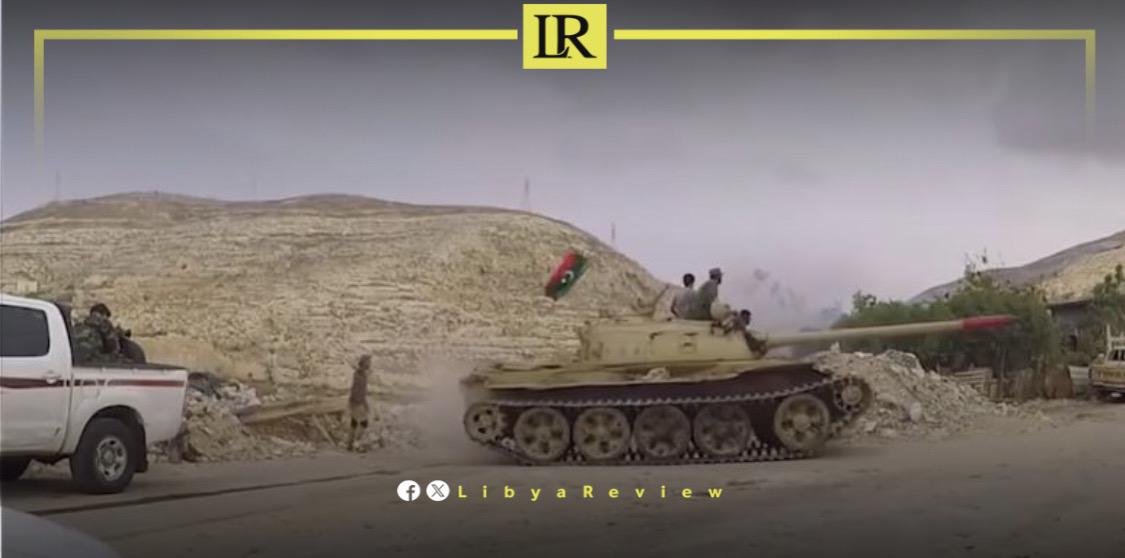The 128th Reinforced Brigade of the Libyan National Army (LNA) launched an attack on armed groups involved in smuggling and gold mining in the Kalanga border area with Chad.
Sources from the LNA informed the Italian news agency Nova that the operation aims to strengthen control over the borders with Chad and Niger in light of the recently signed trade agreement in Benghazi between Tripoli and Niamey.
The agreement, signed by General Mohammed Tomba, the Nigerian Minister of Interior, along with the LNA’s General Command, aims to revive an old treaty concerning the protection of shared borders between the two countries and another agreement on intelligence sharing. Additionally, the agreement includes a memorandum of understanding related to free trade and economic zones.
The signing of the agreement is part of an official working visit to Benghazi that began on August 15, with Tomba accompanied by a delegation from the intelligence and counter-terrorism agencies.
Major General Saddam Haftar, Chief of Staff of the Land Forces, sent a condolence message to Major General Hassan Matouq Al-Zama, Commander of the 128th Reinforced Brigade, for the soldiers of the brigade who were martyred during clashes with armed militants in the Kalanga border area with Chad.
Libya has been in chaos since a NATO-backed uprising toppled longtime leader Muammar Gaddafi in 2011. The county has for years been split between rival administrations.
Libya’s economy, heavily reliant on oil, has suffered due to the ongoing conflict. The instability has led to fluctuations in oil production and prices, impacting the global oil market and Libya’s economy.
The conflict has led to a significant humanitarian crisis in Libya, with thousands of people killed, and many more displaced. Migrants and refugees using Libya as a transit point to Europe have also faced dire conditions.
The planned elections for December 2021 were delayed due to disagreements over election laws and the eligibility of certain candidates. This delay has raised concerns about the feasibility of a peaceful political transition.
Despite the ceasefire, security remains a significant concern with sporadic fighting and the presence of mercenaries and foreign fighters. The unification of the military and the removal of foreign forces are crucial challenges.


